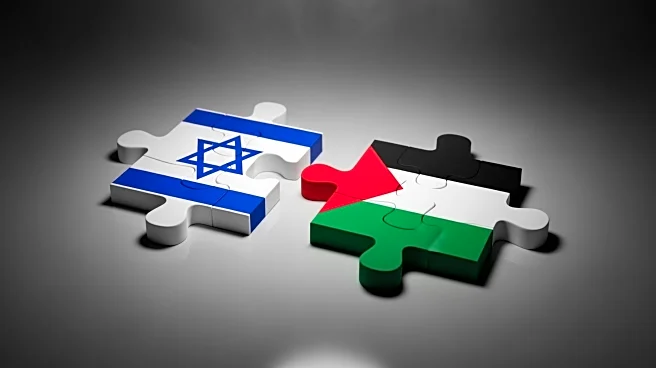What's Happening?
Israel has received the bodies of two hostages from Gaza, identified as Ronen Engel and Sonthaya Akrasri, according to the Israeli Prime Minister's office. The remains were transferred via the Red Cross and are part of a ceasefire deal between Israel and Hamas.
The delay in returning the bodies has caused outrage in Israel, as the ceasefire agreement stipulated the release of all hostages. Hamas claims difficulties in locating bodies due to rubble from Israeli airstrikes. The ceasefire deal also involved the release of living hostages and Palestinian prisoners.
Why It's Important?
The return of the hostages' bodies is a significant development in the ongoing conflict between Israel and Hamas. It highlights the humanitarian challenges and the complexities of ceasefire agreements in conflict zones. The situation underscores the difficulties in implementing ceasefire terms and the potential for renewed tensions if agreements are not fully honored. The involvement of international organizations like the Red Cross emphasizes the global dimension of the conflict and the need for continued diplomatic efforts to ensure compliance with ceasefire terms.
What's Next?
The Israeli government has ordered the Rafah border crossing to remain closed until further notice, pending the return of all hostage remains. This decision affects Palestinians needing medical assistance and those wishing to return to Gaza. The situation may lead to increased diplomatic pressure on Hamas to comply with the ceasefire terms. The international community, including the United States, may play a role in facilitating further negotiations and ensuring the ceasefire's success.

















